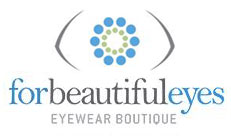 Ultraviolet (UV) radiation from the sun is a known risk factor for various eye conditions, including cataracts, macular degeneration, and photokeratitis. Many people are aware of the dangers UV rays pose to the skin but often overlook the damage they can cause to the eyes.
Ultraviolet (UV) radiation from the sun is a known risk factor for various eye conditions, including cataracts, macular degeneration, and photokeratitis. Many people are aware of the dangers UV rays pose to the skin but often overlook the damage they can cause to the eyes.
Long-term exposure without proper protection can lead to permanent vision impairment.
Sunglasses are more than a fashion accessory; they serve as essential protection for your eyes against UV exposure. For Beautiful Eyes helps patients select high-quality sunglasses designed to provide maximum UV protection while offering comfort and style.
The Impact of UV Radiation on Eye Health
Australia experiences some of the highest levels of UV radiation in the world, making effective sun protection crucial. Without adequate eye protection, prolonged UV exposure can contribute to serious conditions:
- Photokeratitis – This is essentially a sunburn on the surface of the eye, caused by short-term, intense UV exposure. Symptoms include pain, redness, and blurred vision. It is common among people who spend extended time in high-glare environments such as beaches and snowfields.
- Cataracts – One of the leading causes of vision impairment worldwide, cataracts develop when the eye’s lens becomes clouded over time. UV exposure accelerates this process, making sunglasses a key preventative measure.
- Macular Degeneration – This progressive condition affects the macula, the part of the retina responsible for detailed central vision. Long-term UV exposure is a known risk factor for macular degeneration, which can lead to significant vision loss.
- Pterygium (Surfer’s Eye) – This condition occurs when a fleshy growth forms on the white part of the eye, often extending over the cornea. It can cause irritation, redness, and, in advanced cases, visual obstruction.
- Eyelid Cancer – The delicate skin around the eyes is particularly vulnerable to sun damage. Sunglasses that provide full UV protection help reduce the risk of developing cancerous growths in this area.
How to Choose the Right Sunglasses for Maximum Protection
Not all sunglasses offer the same level of protection, so it is essential to select a pair that provides full coverage from harmful UV rays.
The most important factor when choosing sunglasses is to look for lenses that block 100% of both UVA and UVB rays. This is often labeled as "UV400," which means the lenses filter out all light waves up to 400 nanometers, effectively covering both forms of ultraviolet radiation.
Polarized lenses are an excellent choice for reducing glare from reflective surfaces such as water, roads, and glass. While polarization does not increase UV protection, it enhances visual comfort by improving contrast and reducing eye strain in bright conditions.
The design of the frame also plays a role in protection. Wraparound sunglasses or those with larger lenses offer more coverage, preventing UV rays from reaching the eyes from the sides. This is particularly important for people who spend a lot of time outdoors or engage in activities such as boating, skiing, or cycling.
While lens colour does not determine UV protection, different tints can enhance vision in various conditions. Brown and amber lenses improve contrast and depth perception, making them ideal for outdoor sports.
Grey lenses provide a natural colour balance, reducing brightness without distorting colours. Green lenses offer a middle ground, maintaining colour accuracy while reducing glare.
For those with an active lifestyle, impact-resistant polycarbonate lenses are recommended. These lenses are lightweight, durable, and resistant to shattering, making them ideal for sports and outdoor activities.
Prescription Sunglasses: UV Protection Without Compromise
If you wear prescription glasses, there is no need to compromise on UV protection. Prescription sunglasses are custom-made to provide clear vision while offering full protection from the sun. Clip-on sunglasses and photochromic lenses, which darken in response to UV exposure, are also effective options for those who need corrective lenses.
We offer a wide range of prescription sunglasses tailored to individual vision needs. Whether you need a specific lens type, coating, or frame style, our team can help you find the perfect pair to suit your lifestyle.
Sunglasses for Every Lifestyle
Sunglasses should be chosen based on individual needs and daily activities.
- For everyday wear, sunglasses with UV400 protection and comfortable, lightweight frames provide effective sun protection while maintaining style.
- For driving, polarized lenses help reduce glare from roads and reflective surfaces, improving clarity and reducing eye strain.
- For sports and outdoor activities, impact-resistant sunglasses with wraparound frames offer the best protection against UV rays, wind, and debris.
- For beachgoers and water sports enthusiasts, polarized lenses are particularly beneficial in cutting glare from the water’s surface, enhancing visibility while protecting against harsh sunlight.
Sunglasses for snow conditions should include mirror-coated lenses to reflect intense light and reduce glare, especially at high altitudes.
Regardless of the activity, ensuring that sunglasses meet the highest UV protection standards is essential for long-term eye health.
Book a Sunglasses Consultation
Protecting your eyes from UV damage is essential for maintaining long-term vision health. Visit For Beautiful Eyes to explore our collection of high-quality sunglasses and find the perfect pair to suit your lifestyle.
Contact us today to book a consultation and ensure your eyes are properly protected from harmful UV rays.
